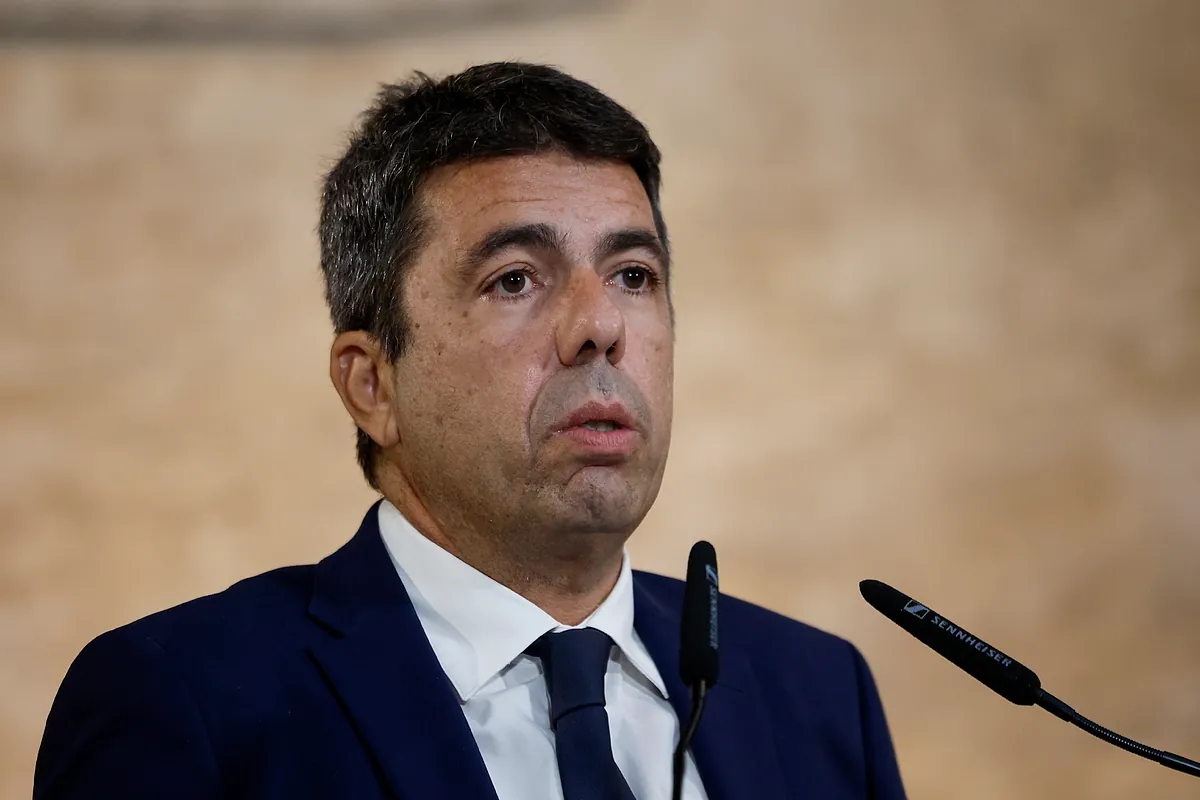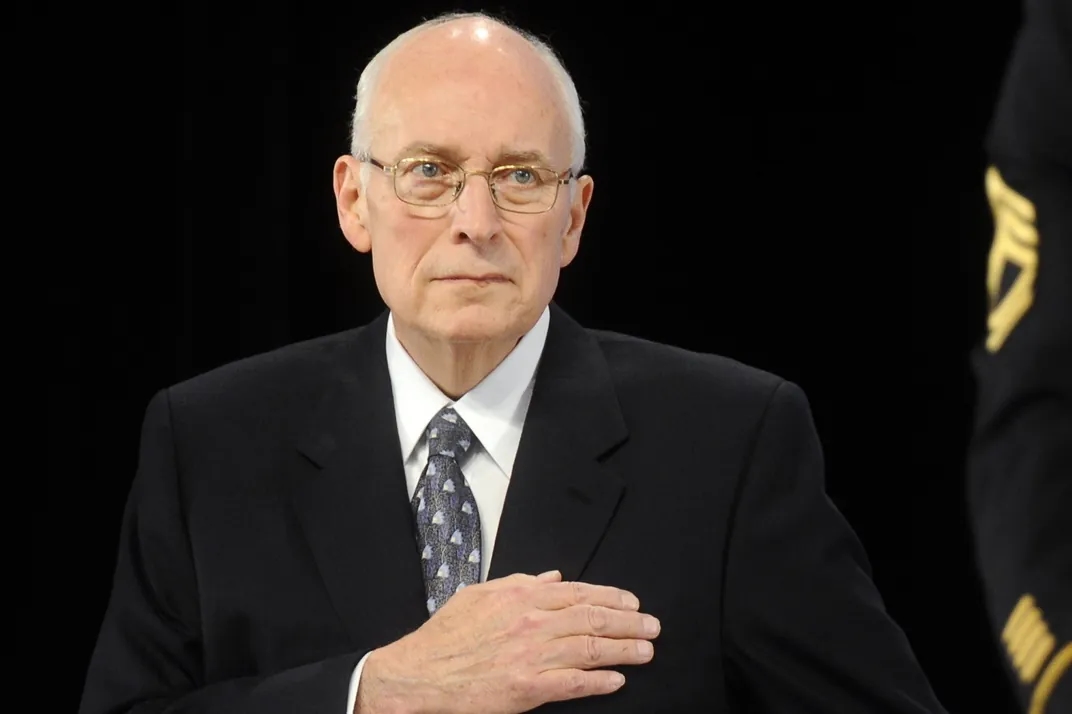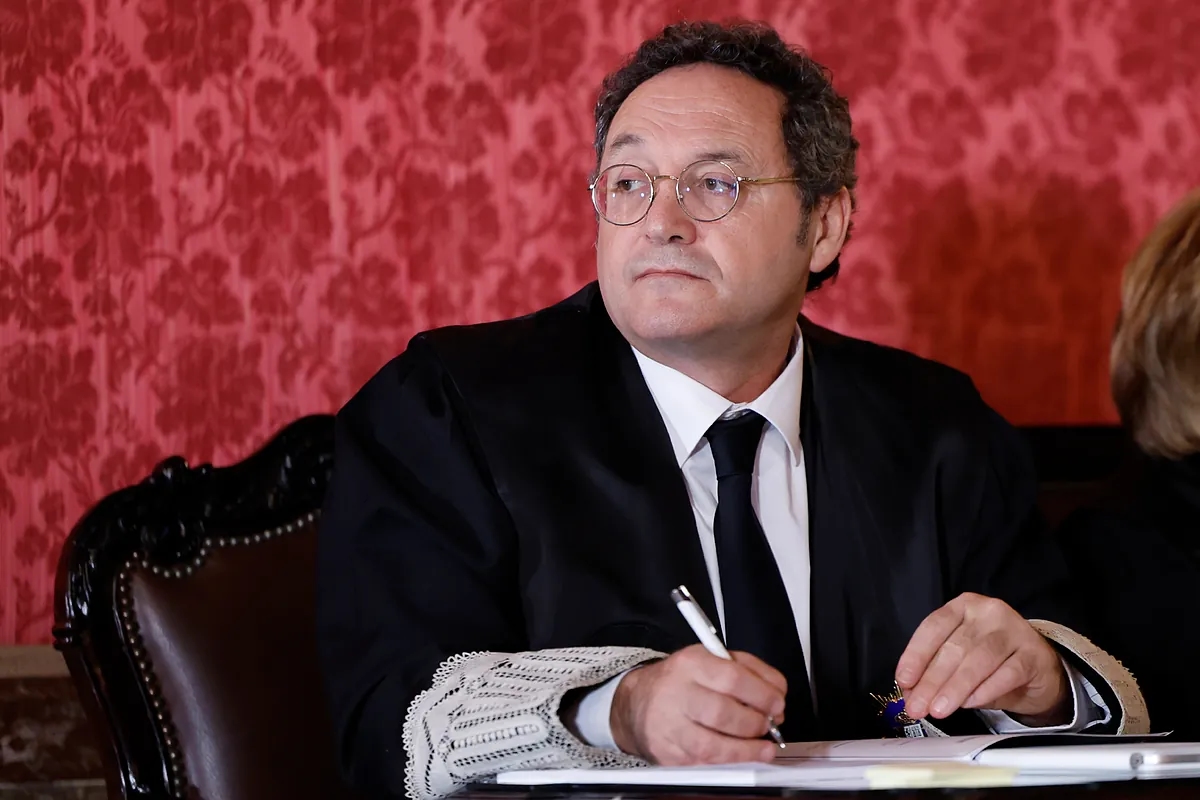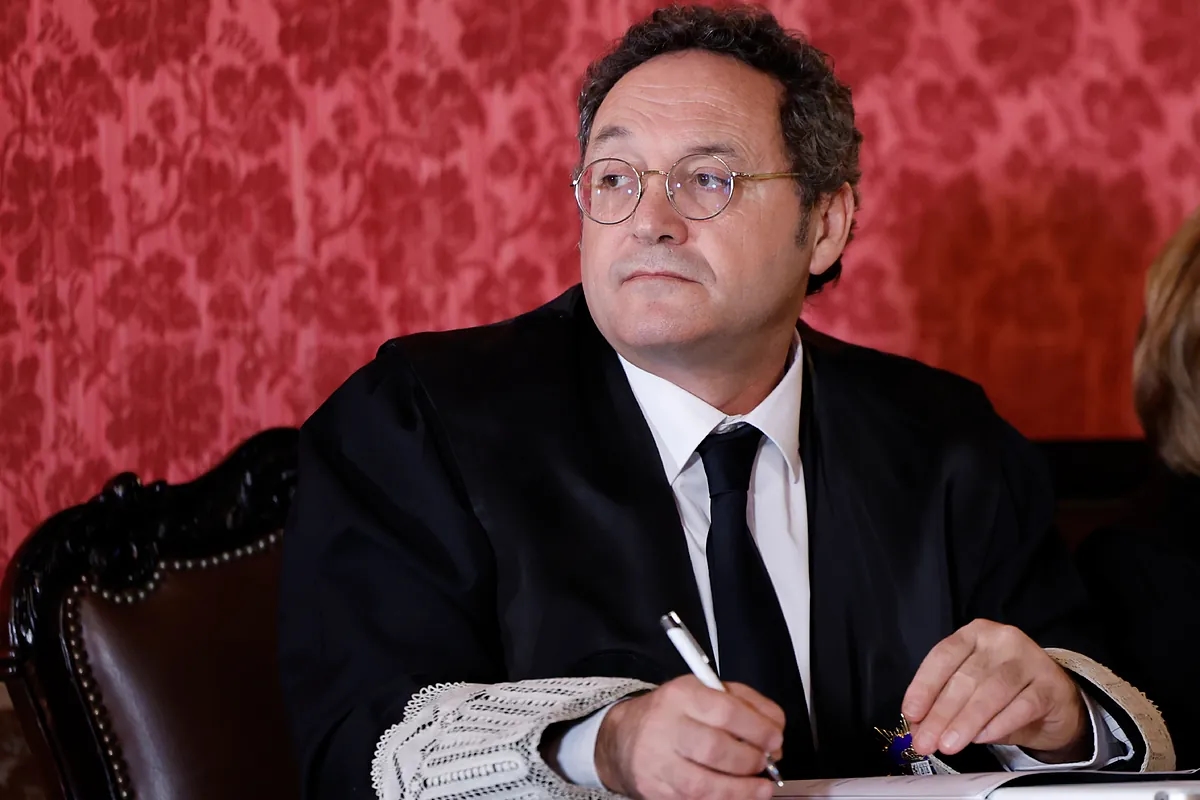Gustavo Petro says he will travel to New York for a UN meeting despite US sanctions

Colombian President Gustavo Petro announced he will return to New York to address the United Nations, despite recent sanctions imposed against him by the U.S. government. The announcement came during an interview with Al Jazeera in Cairo, Egypt, as part of his Middle East tour.
The president assured that he will travel since, starting in January 2026, Colombia will be a non-permanent member of the United Nations Security Council - the body responsible for maintaining international peace and security.
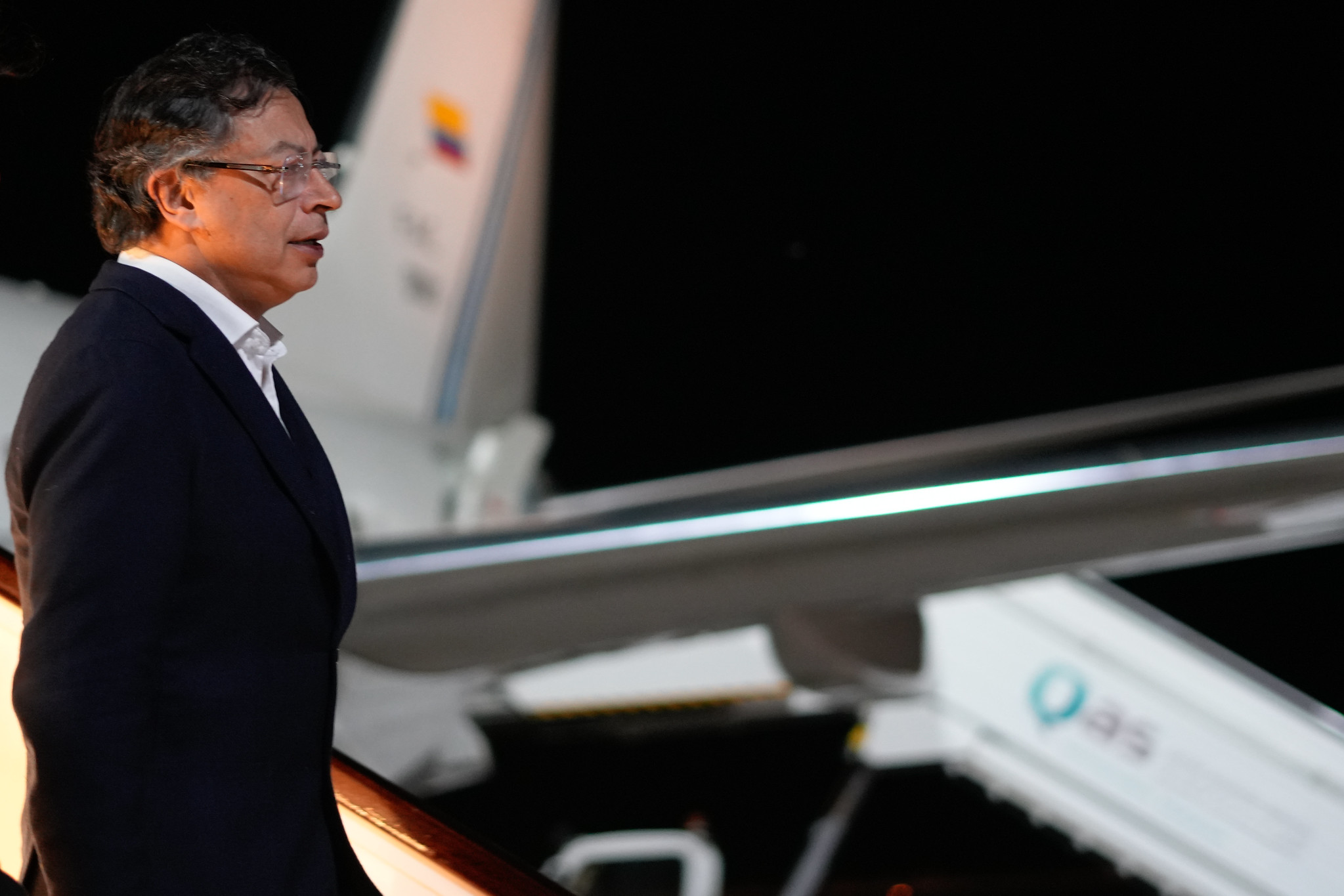
President Gustavo Petro in Doha. Photo: Presidency
In other words, his return to American soil would be next year . "I will have the pleasure of returning to New York, even if the federal government doesn't want to receive me there," the president stated, indicating his intention to address the council about the situation in Palestine.
"We offer that Colombian seat to the Palestinian people so that they can express themselves there, in the Security Council, knowing that they veto us," he declared.
Without a visa and on the Clinton List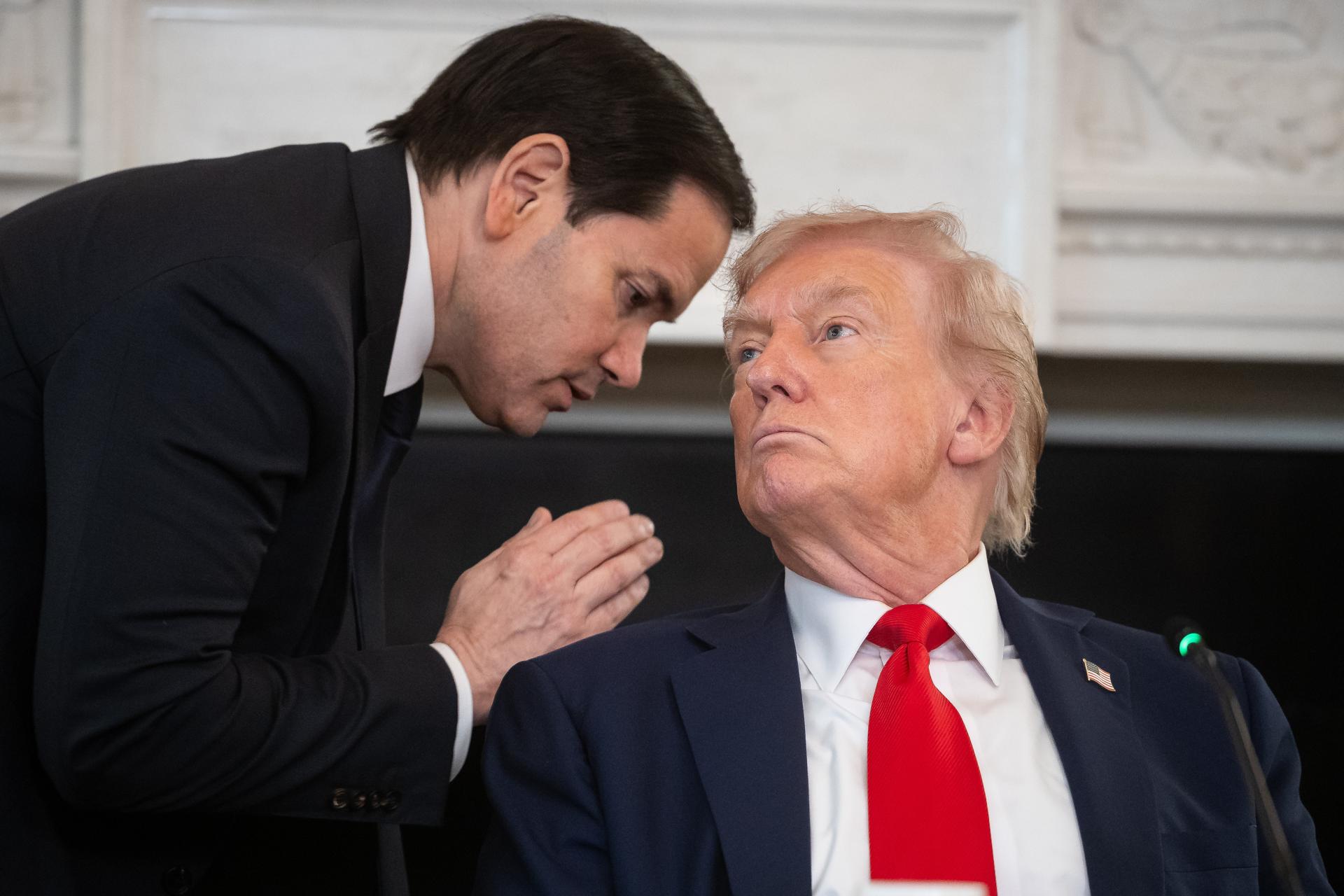
Secretary of State Marco Rubio and Donald Trump. Photo: EFE
At the end of September, the government of Donald Trump withdrew Gustavo Petro's visa for asking the US military in the streets of New York, with microphone in hand, to disobey the orders of their commander-in-chief.
Then, on October 24, the Colombian president was included along with close associates on the dreaded Clinton List, created three decades ago to target the finances and money laundering of drug trafficking and, after 9/11, any organization that the White House and its agencies consider close to international terrorism.
While further details are unknown, the arguments for placing Petro on the Treasury's 'blacklists'—which in practice amounts to financial and commercial death, since any entity or person doing business with those blacklisted is also subject to sanctions—are more general. Washington accuses Petro of having allowed the growth of drug cartels through his 'total peace' policy, which allegedly benefited "narco-terrorist" organizations.
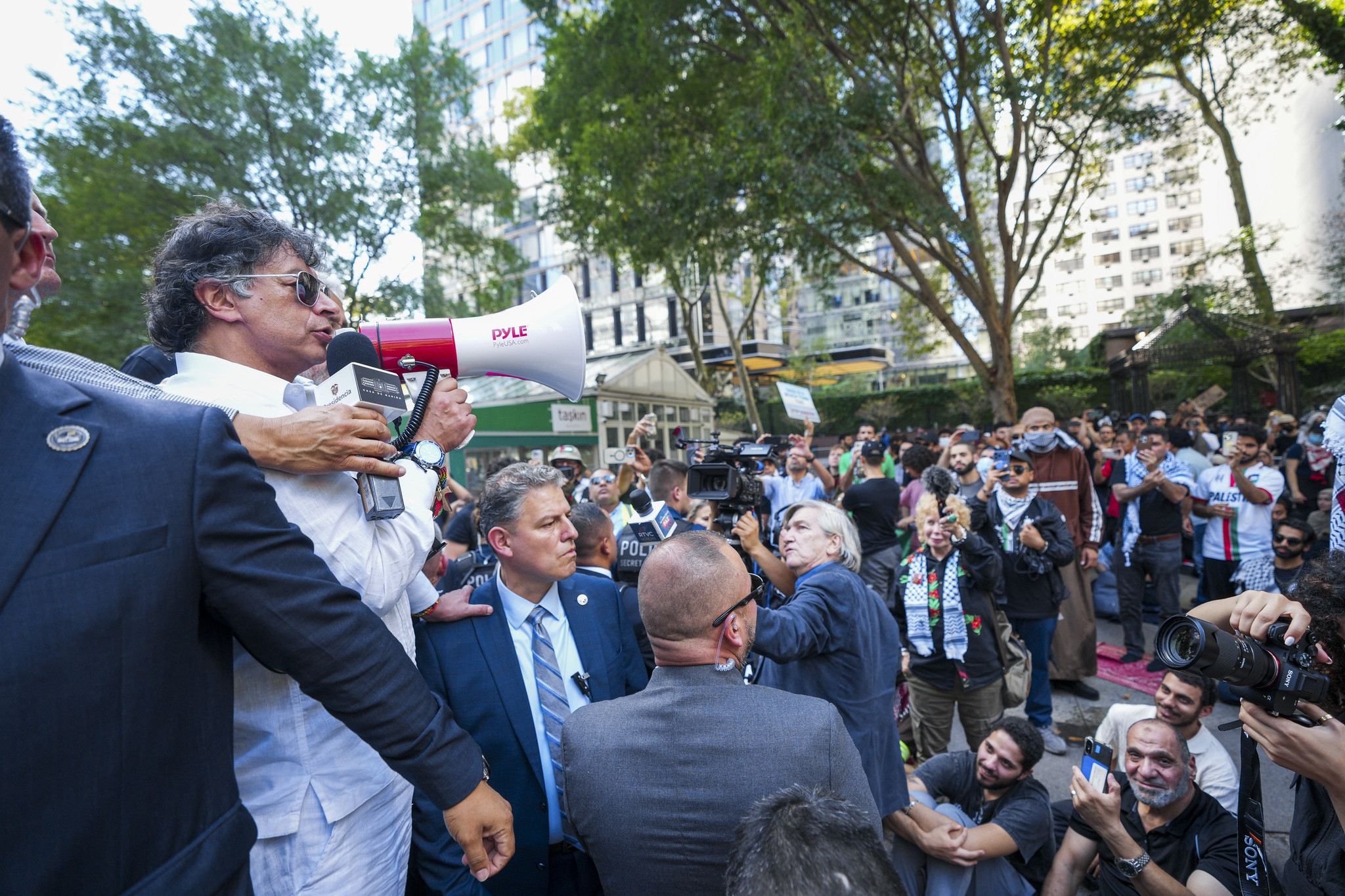
President Gustavo Petro called on the U.S. military to disobey Trump, in New York. Photo: Presidency
EL TIEMPO revealed that the list of close associates could be expanded in the coming weeks.
Although the Colombian president could use a European passport or a diplomatic visa to enter the UN headquarters in New York, the decision would undoubtedly pose a challenge for the White House.
"We look forward to working with the future government of Colombia to understand its peace and security priorities and, therefore, the role of this United Nations mission in achieving those goals," said Mike Waltz, the United States representative to the UN.
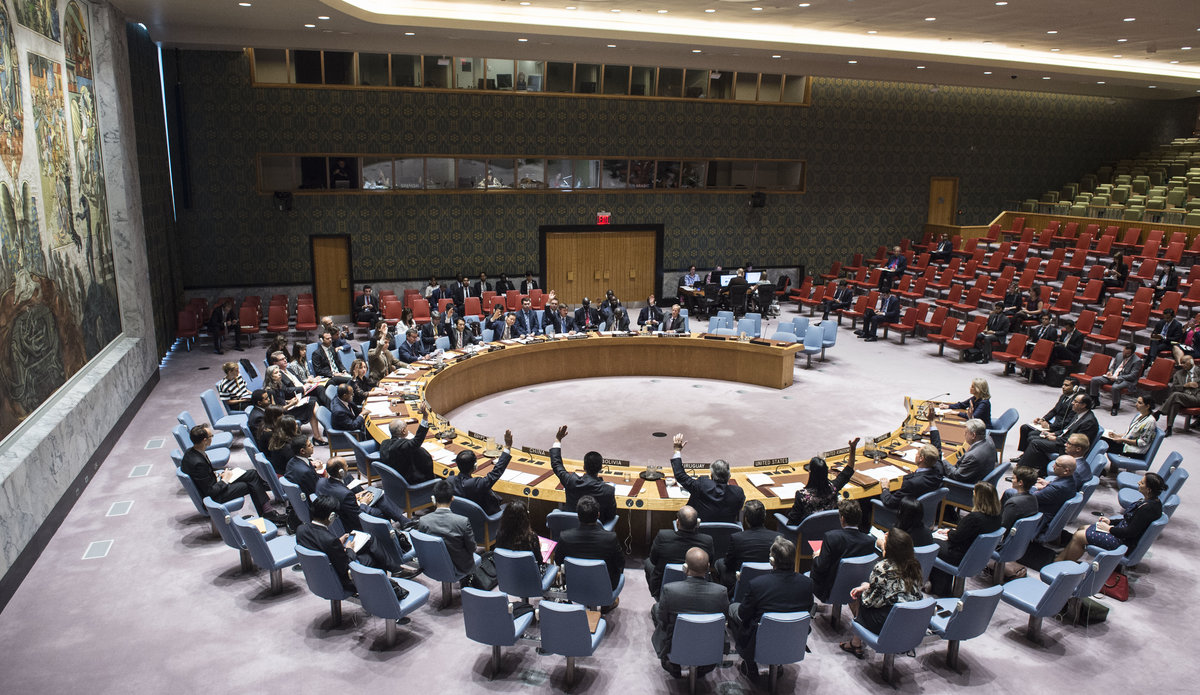
UN Security Council. Photo: UN Photo/Kim Haughton
In June, Colombia, along with Bahrain, the Democratic Republic of Congo, Latvia, and Liberia, were elected as non-permanent members of the UN Security Council, with two-year terms beginning in January 2026. They will join the five non-permanent members elected last year—Denmark, Greece, Pakistan, Panama, and Somalia—who will serve until 2026.
The new members will succeed Algeria, Guyana, the Republic of Korea, Sierra Leone and Slovenia, whose terms end in December 2025.
With artificial intelligence assistance*
eltiempo

